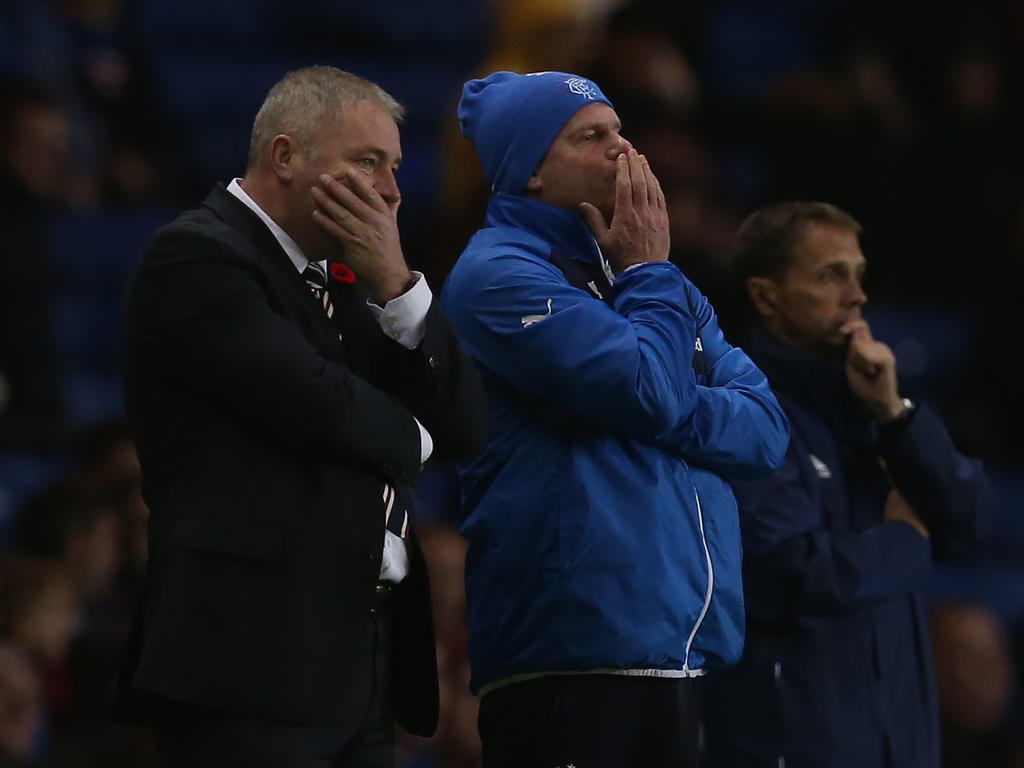No end in sight for Rangers soap opera

Ally McCoist's resignation as Rangers manager is the latest storyline in a long-running saga which has overshadowed the club in recent years.
McCoist's decision has triggered a 12-month notice period in this rolling contract which will see his wages increase to £750,000 ($1.2million).
He had volunteered to take a 50 per cent wage cut in October last year but his salary will rise again following an agreement he struck with former chief executive Graham Wallace.
As a player, McCoist sealed his place as a club legend.
The club's record goal-scorer, he was an integral part of the Rangers side that won nine titles in a row as they dominated Scottish football in the 1990s.
However, his time in charge at Ibrox has coincided with the darkest days in the club's history off the field coupled with mixed results on it.
The former Scotland striker took over in the summer of 2011 after serving a four-year apprenticeship under Walter Smith which saw the club win three league titles in a row.
However, the club soon entered administration in February 2012 over an unpaid tax bill after the short, but chaotic, reign of Craig Whyte.
The 43-year-old is now facing criminal charges of being involved in a two-year fraudulent scheme relating to his 2011 takeover of the club.
Liquidation followed in June 2012 to cap an amazing fall from grace for Scotland's most successful club, who have won a record 54 Scottish top flight championships.
A consortium headed by former Sheffield United chief executive Charles Green then bought the club's assets as Rangers were forced to start life again in the country's bottom tier.
Green's tenure was beset by financial upheaval and boardroom infighting and the controversial chief executive was eventually forced out of Ibrox after a public bust-up with McCoist in August 2013.
McCoist's decision to hand in his resignation comes at a time of huge cost-cutting at Rangers which has seen the departure of long-serving administration and ground staff, including the manager's secretary.
It also coincides with a poor run of form for Rangers, whose bid to return to the top flight of Scottish football has stalled in recent weeks.
Two defeats to Hearts, coupled with losses to Hibernian and Queen of the South, has left Rangers nine points adrift of leaders Hearts, who have a game in hand, in the race for the one automatic promotion spot.
Their loss to part-timers Alloa in the Scottish Challenge Cup, a competition only open to lower league clubs, was also a low point in the club's history.
McCoist's resignation leaves him in a stand-off with the club's chiefs, who could either keep him in place for a year or negotiate a pay-off, but he seems content to see out his notice.
When asked following the defeat to Queen of the South on Friday if he believed he would still be the Light Blues boss next season, McCoist said: "Absolutely. I'm the Rangers manager and that will hopefully be the case for the foreseeable future."
The Rangers board, however, may have other plans.
Talks with McCoist, who took training as normal on Monday, are due to take place on Wednesday ahead of next week's AGM, but any settlement they agree with him will put a further strain on the financially-stricken club.
Results on the field, coupled with the boardroom dramas of recent years, has seen Rangers' fans become disenfranchised with the club and it recorded 15,000 less season tickets sales this term than the previous two years.
The club reported an operating loss of £8.3m, compared to £6m the previous year, and have had to accept £3m in loans from Mike Ashley.
However, the Newcastle United owner's growing influence at Ibrox has led to him and the club facing a Scottish FA disciplinary hearing after they were accused of breaching several rules relating to his near nine per cent stake in Rangers.
The accounts also reveal that a further £8m in additional funding will be required in January to keep the club running with shareholders expected to agree to a further share issue to plug the funding gap.






